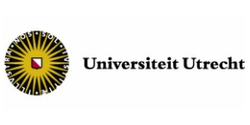PhD on "More Linguistics for More Generalisable and Explainable AI"
Updated: 05 May 2024
In this position you will combine deep learning and linguistics to study two critical shortcomings of state-of-the-art AI systems in natural language understanding: explainability and generalisation. The position is part of the project “More Linguistics for More Generalizable and Explainable AI” (AI+Ling).
Your job
We are seeking to hire a highly motivated, driven, and talented PhD candidate to carry out this project in a period of four years. The project will be carried out at the Institute for Language Sciences (ILS), Utrecht University.
Today we are faced with AI systems that can use natural language to a remarkable degree and are already being deployed in various service sectors and real-life scenarios. Current state-of-the-art AI and Natural Language Processing systems are largely based on neural network based Large Language Models (LLMs). The size and content of their training text further amplify the well-known opacity of deep neural networks, and little is known about the extent of their knowledge and behaviour. Thus, one of the most pressing issues related to AI systems is related to explainability and generalisation.
This PhD project will take a data-centric approach to the two challenges of explainability and generalisation associated with AI systems. One of the goals of the project will be to use innovative methods for the generation of adequate datasets for the evaluation of the natural language understanding capacity of AI systems, by capturing the complexities of semantic behaviour that are not represented in current evaluation methodologies. For instance, the project will design ways to (semi-)automatically and reliably recast existing benchmarks to make them suitable for evaluating the explainability and generalization capacity of AI systems on language understanding, as well as explore state-of-the-art neural architectures for adapting to new challenging semantic benchmarks.
The tasks include:
- completion and defence of an article-based PhD dissertation within four years;
- publication of peer-reviewed articles in established international journals or conference/workshop proceedings;
- regular presentation of (intermediate) research results at workshops and conferences;
- co-organisation of project workshops, language training and conferences;
- participation in training programmes and international expert meetings;
- participation in relevant training programmes provided by the Institute for language sciences (ILS) and the Utrecht University graduate school, the National Graduate School of Linguistics (LOT) and other organisations.
Requirements:
- A Master's degree (or equivalent) in computational linguistics / natural language processing or a related filed in hand by the starting date;
- excellent programing skills in python;
- solid knowledge of machine learning (including deep learning) and good background in formal linguistics;
- high proficiency in academic English;
- ability to work both as an independent researcher and as a team member;
- affinity with interdisciplinary research;
- strong organisational, social and communication skills;
- ability to meet deadlines;
- a genuine interest and eagerness to deepen knowledge both in neural networks/deep learning, as well as in formal linguistics/semantics;
- prior experience with data collection, annotation, manipulation and formal grammar and reasoning tools is a plus.
Salary Benefits:
We offer:
- a position for 18 months - after a positive evaluation the position will be extended for the remaining period of 30 months (four years in total);
- a working week of 38 hours and a gross monthly salary between €2,770 and €3,539 in the case of full-time employment (salary scale P under the Collective Labour Agreement for Dutch Universities (CAO NU);
- 8% holiday pay and 8.3% year-end bonus;
- a pension scheme, partially paid parental leave and flexible terms of employment based on the CAO NU.
In addition to the terms of employment laid down in the CAO NU, Utrecht University has a number of schemes and facilities of its own for employees. This includes schemes facilitating professional development, leave schemes and schemes for sports and cultural activities, as well as discounts on software and other IT products. We also offer access to additional employee benefits through our Terms of Employment Options Model. In this way, we encourage our employees to continue to invest in their growth. For more information, please visit Working at Utrecht University.
36 - 40 hours per week
Trans 10

